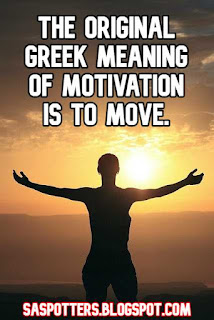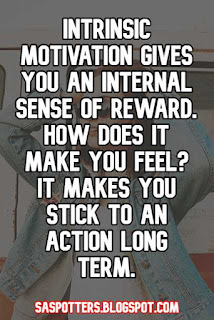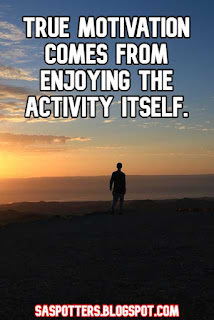Motivation
I’m here to motivate you!
I’m a 55-year-old personal trainer that has been in the fitness industry for three decades. I love fitness and I’m here to get you fired up!
There is only one problem.
I learned when I was in the psychology program while working on my undergraduate degree that I can’t motivate you.
Let’s talk about this.
What is motivation?
The word motivation goes all the way back to the Greek times. The original meaning was to move.
I majored in psychology originally. I have used this degree my entire career in the fitness industry.
I took an entire class on motivation. I thought I would learn how to motivate people!
I was already heavily into working out personally even before I got into this as a career. That’s why I wanted to do it as a career.
I stepped into Dr. Fisher’s Motivation class only to have him write on the board (yes, they still used chalk boards when I was in college) “You Can’t Motivate Someone Else.”
Well, that greeting was disappointing - considering that that was the big secret I was looking for.
After being in this field for years, I’ve confirmed that Dr. Fisher is correct.
You cannot motivate another person, but people can find their own source of motivation.
Types of motivation
1. Intrinsic motivation
2. Extrinsic motivation
There are many types of motivation, but overall motivation can be lumped into two main categories, intrinsic motivation and extrinsic motivation.
Intrinsic motivation
Intrinsic motivation is doing something for you.
It means you feel an internal reward for something that you do.
This type of motivation isn’t as common in the fitness world as extrinsic motivation.
An example of intrinsic motivation would be that you feel better from the fitness changes that you have made in your life, so you feel compelled to stick to it.
Studies show that people that are intrinsically motivated are far more likely to stick with an activity.
It’s a goal of mine to attempt to teach people that are extrinsically motivated to become more intrinsically motivated.
Yes, people can be extrinsically motivated in one area and intrinsically in another.
Extrinsic motivation
Extrinsic motivation means that the person is motivated from an outside source like a parent, spouse, or teacher.
A person running a 5 k because they want the medal at the end is motivated extrinsically.
A young woman who is working out to lose weight because her spouse told her that he’d buy her a new dress is extrinsically motivated.
Yes, I’ve had a client tell me that! That’s not overly good!
Extrinsic motivation has a point where it’s not as effective.
What we’ve found is that extrinsic motivation is good for teenagers and younger kids. Once a person reaches adulthood then extrinsic motivation is limited as far as physical fitness goes - and I’d argue for other areas as well.
We can all have both types of motivation.
It is extrinsic motivation when you do something for money.
If you are working because you love how the work makes you feel that is intrinsic motivation.
You display both types of motivation when you are fired up because you love the job and you earn an income from it.
You can't motivate other people
You can't motivate another person.
This comes up at the gym when a client asks us how we can help them to motivate their spouse.
You can’t! It won’t work.
As a trainer that’s been in business for close to three decades, when I hear “I’m going to send my husband in so you can help get him fit,” I cringe right away.
The next response I have is one of decline. I say thanks but no thanks.
I explain that if he hasn't made that choice, it’s going to be a very frustrating proposition for both him and me.
I’m not willing to take that on. It doesn’t work.
Another example is when parents are trying to motivate their kids to get into fitness or get them to move more.
I don’t think you can.
I have a daughter. She is a teen. When she was younger, I would try more of the extrinsic ways of getting her involved.
She would spontaneously get very active on her own here and there.
What I found was what I persist on, she resists.
She’s healthy and she’s fine.
I was more about trying to get her to play sports. I was never one of those crazy parents that over pushed or “made,” but I would try the extrinsic game. I would try to reward her financially or with gifts if she did certain things.
It doesn’t work.
Her mom is into fitness too. To be honest I think that she resists it because she’s seen too much of it her entire life - even though neither of her parents were nuts about it. I’ve seen some that are.
At times I will catch my daughter doing some type of fitness activity on her own.
She will either use dumbbells or go for a run.
Now I just say to her, “That’s cool”.
I know that she’ll pick it up when it’s right for her. I can’t push my agenda on her. She must find it for herself.
I go back to the spouse who wants to push their partner into fitness.
What is their motivation?
Think about the subconscious messages that you send.
Worry about yourself. Don’t push your agenda on another.
A spouse may state “How about you go to my trainer, he’s great!”
The spouse hears “You are out of shape and I want you to change”.
Think about that.
How to motivate yourself
You can only motivate yourself. How do you motivate yourself?
In the true meaning of the word, it must matter to you. If it doesn’t matter, it won’t work.
Be completely honest about what matters to you, and quit the BS, to motivate yourself.
I’ve had many clients that say all of the things that they think they are supposed to say regarding what matters to them.
They state generic things that would get a lot of likes if they posted it on social media. Is that real?
We’ll find out soon enough.
The motivation isn't real if they stop going after a few weeks.
We will do only what we feel like we must do. If it's optional, we'll put it off till later.
We will only do it when we really must do it. If you don't sense a great need or urgency to do something, you won't do it.
Exercise is always there, but you only have the opportunity to buy junk food at a certain point on your way home.
We struggle to look down the road and see how something now can benefit us later.
We fault our kids with this, but do the exact same thing with embarking on a physical activity program or diet of our own.
We don’t see the need - yet.
How to motivate other people
Here are a few ways that teachers, trainers, or leaders of any kind can help to spark some motivation in others.
Be a good role model
The first way is to be a good role model.
If you live by the 'do as I say and not as I do' mindset, you will fail as a role model.
Modeling is huge.
As I’ve stated, my undergraduate degree is in psychology. I’ve seen many studies and theories on this.
The theory on modeling is significant. Studies show that kids learn much more from what we do versus what we say.
It’s funny, well not really, when I hear about the tough guy dad that has a strict rule against aggression with his kid only to brag about being a tough guy on social media.
Kids care little about what you say. They watch.
What is our own approach about fitness? Are we setting a good example with our actions and perceived motives?
Let me explain.
You may think that the Cross Fitters or similar type fitness groups would be great motivators because of their physical feats. They are not (as a whole).
They might motivate a very select few of the population, but all of that self-congratulatory behavior is not motivating. It’s chest pumping.
I’m not saying that all groups do this or that every social media post is about that. It’s common place, though.
What is this person’s motivation for exercise? If it’s simply to be the best in the gym, then that will only motivate people when that is also their motivation.
Be aware that if you are into high levels of fitness, like I am, that can be great. But watch your presentation.
If it seems like you are doing it for praise, it won't be very motivating to others. It’s far more appealing when fitness appears to be wrapped in a package of humility.
If you are trying to inspire others to find their best selves, check your own motives first.
Are you equipped to be that role model or do you need to find yourself first? That’s okay too.
Let me tell a story about that.
When I was teaching sports medicine in college, I asked the students early on what their motivation for being in the program was.
I would do this on the first day of class. Yes, I know I was one of those teachers. I hated that in college!
One day I did this, and I called on a student named Chris. He was going to school on the GI Bill. He appeared to be out of shape.
He said, “Mr. Maxwell I have young kids. I need to get myself in shape and I figure that by learning how to do it I’ll be forced to do it for myself.”
He went on: “And I need to be around for my kids. They need me.”
Bam! It was very touching to me. This happened around ten years ago, and you can see that I still remember it.
That is awesome to me. That’s motivation. I have lost contact with this student, but I know that while he was in the program which was over 10 months long, he made a lot of progress at making himself healthier.
If the Why is important, the Do becomes easier.
His story will spark a lot more motivation than glory posts on social media.
Education is motivation
Another way to help someone along with motivation is education.
As a trainer it’s my best and only tool along with attempting to be a role model. I educate.
That’s all I can do.
I am fortunate and I have worked hard. I have a waiting list to come to me for personal training. I can be selective.
When I was younger and not as accomplished, I was still selective. I take what I do seriously and I don’t want any time wasters in my gym.
I’ll have clients come for a consultation and say, “Tell me why I should do this". A lot of trainers have this.
They don’t like my answer. I guess they are used to being sold, like buying a car.
I’ll look at them and say, “No. I can’t tell you that". “You either want to get better or you don’t”.
It's an ice breaker and cuts right to the chase.
You aren't motivated if you feel obligated to hire a trainer, do it out of guilt or do it because that's what other people do.
These people aren’t motivated enough for me, anyway. I want a client that wants to get better.
Better at what? They want to be better at whatever matters to them.
If they want more agility so that they can play Pickle ball, great! If they want more strength so that they can improve on their activities of daily living, great! If they want to lose weight because they want to become healthier, great!
I don’t care what they want - as long as it is what they want.
We say in our trainer circles that we can’t want this more than the client. We can only give them what they give us.
I can give the facts. I don’t have to sugarcoat things.
If a client doesn’t seem to give a lot of effort into their training, like stopping early on a set because it’s burning, I let them know that their rewards will be subpar.
One of the issues is that many people in my field, like all fields, just want to get paid. When this is the case, they’ll tell people whatever they want to hear as long as they keep paying them.
If a person isn't truly motivated, they’ll quit because they aren’t seeing results quick enough. Many in the fitness industry don’t care. They can bank on people who aren’t truly motivated and aren’t ready to get fit.
I take what I do serious out of love, so I won’t lie to them. I care.
Telling people the truth will either motivate them or make them quit.
They will be more motivated if they really care about their goals. If they don’t, they will quit. Superficial goals don't stick. Real goals do.
I’ve found that if you tell the truth to really help people find their motivation, the truly motivated will find you, the coach. That's my belief.
Education is motivating.
If you educate with the facts, people can decide what’s best for them.
What are truly healthy foods based on science? What is the best program for resistance training? What is the best program for aerobic exercise? What does lead to greater health from an activity and diet perspective?
Answering these questions to people that want to get better will motivate them. The overabundance of information that is not factual on health and fitness is demotivating.
There needs to be an overhaul of the fitness industry. It’s too easy for anyone to become a trainer.
Social media has become a hot bed for 'fitness experts' and it’s gotten worse. Anybody with a good body can post 'facts' because they look good. Our younger generation hasn’t been taught how to follow research and see what’s based on fact or fiction.
Many of the older generation choose to believe things that promise false hope or destroy hope because it’s too expensive or hard to do. Don’t buy it.
If the education is taught properly, the teacher can only sit back and help to guide the student from there on. The student must choose the action of following it.
Can you motivate someone to stop drinking when you know that alcohol isn't good for them? You can't. We all know that. The only thing that you can do is give them the honest information on alcohol if you know it so that they can take honest responsibility for their actions.
Accountability is a good motivator
Another tool that can be effective as far as the motivation goes is accountability. You must hold your student accountable.
After educating them on what the truth is, you must call them out in truth when they step out of it.
When someone complains about their progress, I ask them if they are doing what they know they should do. They will often give the "yeah, but" speech. This means no.
I’ll then ask them if they know better. They’ll say yes. As a trainer, you can’t let people off the hook. We don’t need to be nasty about it, but we need to be truthful.
We aren’t helping people if we make excuses for them. People must want to get better for their own reasons. A good leader is simply there to give truth in a role of support.
The carrot and the stick as a form of motivation
The carrot and the stick are two classic motivators used by coaches, teachers, trainers, and other leaders. Do they work? I’m not sure. I do think that people respond to one way or another.
The carrot as a form of motivation
The carrot is praise or support. It’s the kinder, softer, gentler way of getting somebody to do something. It is telling somebody that they are doing an excellent job whenever they do what you want.
The key with the carrot (and the stick for that matter) is consistency. The motivator must be on their game all of the time.
A person may come to expect the praise. If you don’t deliver their motivation in the way that they expect it, motivation may decline.
An example of the carrot would be if a trainer gave their client a ton of verbal praise as soon as they have an accomplishment.
“You got this” would be a phrase you would often hear if you were getting the carrot type of feedback.
The carrot and the stick approaches use extrinsic motivation.
Intrinsic motivation doesn't require outside praise or punishment. People do things because the action makes them feel good - not because the consequence of the action feels good. We need to focus on getting to this point.
The stick as a form of motivation
The stick is the opposite. It uses negative reinforcement or punishment to motivate.
What is the difference between the two? Negative reinforcement is taking something good away. Punishment is adding a consequence to the individual that 'failed' by your definition. They are different.
Negative reinforcement (remove good things) would be taking video games away from kids that didn’t reach their activity quotient.
Punishment (add unpleasant things) would be harsher. It would be striking a person for not doing what you want or making them run laps in the case of physical fitness and sports.
Do they work? The stick approach doesn't work.
Here is what the research says on these tools:
Punishment works the least. Will they do what you want? They will do what you want as long as they know that you can see them. They will do it resentfully until you turn your back and they can quit.
Is that motivation? They start to hate the activity instead of enjoying it.
Negative reinforcement also works very poorly - but seems to be a little better than punishment.
Research shows that positive reinforcement works the best out of the three options. This is rewarding someone for the behavior that you are trying to mold.
The deal is that all of these options are still extrinsic motivation variables and will only work for so long.
As trainers we hope to use these tools until the person wants it more for themselves. This doesn't work because they learn to crave a certain consequence more than the actual task itself.
Model the activity that you want other people to do
As a trainer, my focus is to model.
It is the best motivational tool that I have. Education is second.
The others mentioned above are short term tools. Modeling is what I want to do.
I got into the fitness industry because I love what fitness did for me.
I was a struggling teenager that learned to binge eat to feel better when my father died when I was 13. I didn’t know how to cope with my emotions. Therapy simply wasn’t that common in the 1970’s. At least it wasn’t common in my household at my mom’s income level. I learned to stuff my feelings by stuffing my face.
A few years into my teen years, right around 17, I got a spark to change. I don’t know where it came from, but I have some very good ideas. I was inspired to change.
I decided to cut out the bad habits. I just started eating what I though was normal. I didn’t binge. I didn’t eat junk food. I didn’t eat seconds. I didn’t pig out anymore. I went from a chubby kid to a very thin young man. I felt so good about myself.
Shortly after getting thin, I started going to the gym. By 18 I was really into lifting. Working out became a way of life.
I originally went to school and majored in psychology. After receiving my degree and working as a counselor I wanted to get into fitness.
I was already really into fitness and was body building - although I hadn’t competed yet. I did later. I went back to school to get my master's degree in exercise physiology.
I just felt like it was my calling and I loved how fitness changed my life. I have been intrinsically motivated since those early days in my teens. I don’t need the carrot or the stick.
You couldn't give me the stick I gave myself anyway. Being a perfectionist, I can be hard on myself. I never said I was perfect, but I am motivated. I could use a carrot here or there, but overall, I am intrinsically motivated.
I’m here to teach, but you must want to learn.
I will give you all the information regarding exercise planning when you first start as a client with me. I will plan it out. You must state what you need after that.
I’m not going to read your mind and pull it out of you. Where do you need help?
The best question that you can ask me if you really want to get in shape and improve your health and fitness is, “What do you do to get in shape?”
That seems like a no-brainer, right?
When you have a teacher in front of you, wouldn’t you think that that is the question to ask?
“What do you do?” Bingo, then you can really help. I like sharing my knowledge. That’s easy. I don’t have to produce some long speech about physiology. I simply must state what I do.
That’s modeling to me.
I work out and eat healthy because I love how it makes me feel both on the outside and the inside.
Keep your carrots and keep your sticks. I’m here for you.
A big motivation of mine is that I want to be out there and available because I love wellness. Wellness is a prize that is well used when it is earned.
I hope that you find your motivation.
This article is written by Rob Maxwell, M.A. Exercise Physiology, CSCS and ACSM CPT from www.fittothemax.net. Follow him on Twitter.

















No comments:
Post a Comment